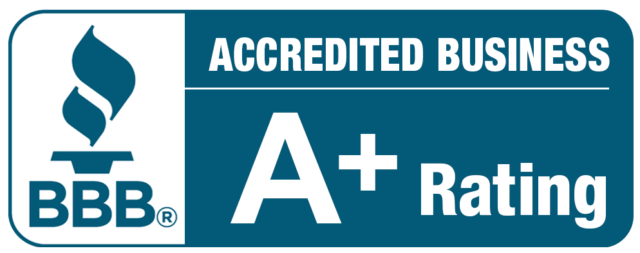If you are caring for an in-home patient, having personal hygiene tips up your sleeve is very important. This is not just for them but also for you as a caregiver. Chances are that you will be dealing with a lot of cleaning, medication handling, body waste, etc, you need to practice personal hygiene on both sides to keep healthy the much you can.
Maintaining proper personal hygiene is an indispensable aspect of daily life as it impacts our overall health, well-being, and confidence. For in-home patients, individuals who may be recovering from illness, managing chronic conditions, or facing mobility challenges, adhering to a rigorous personal hygiene routine is of utmost importance.
In-home patients often rely on the support of caregivers, family members, or healthcare professionals to address their hygiene needs, making it essential for you to keep the best practices for personal hygiene handy.
This article reminds you of indispensable personal hygiene tips specifically for in-home patients. By meticulously implementing these tips, caregivers, and patients can have a clean and safe environment that promotes optimal healing and overall well-being. This in the long run contributes to a sense of dignity and self-respect during their healing journey.
Important Personal Hygiene Tips for In-Home Patients
As earlier established, personal hygiene is indispensable for everyone. For in-home patients, here are the personal hygiene tips we have seen in line with healthy living that is essential caregivers promote:
1. Regular Handwashing
Handwashing is the foundation of personal hygiene and plays a pivotal role in preventing the spread of infections. In-home patients should be encouraged to wash their hands frequently, especially before meals, after using the restroom, and after coughing or sneezing.
Proper handwashing involves using soap and warm water, lathering thoroughly for at least 20 seconds, and paying attention to areas like the back of the hands and under the nails. Emphasize that hand sanitizer is not a substitute for handwashing but can be used when soap and water are not available.
2. Regular Bathing and Showering
Regular bathing or showering is essential for maintaining personal cleanliness, preventing body odor, and reducing the risk of skin infections. Instruct in-home patients to use warm water and mild, hypoallergenic soap to avoid skin irritation.
For individuals with limited mobility, consider using a shower chair or bath bench, along with a handheld showerhead for easier bathing. Pay particular attention to cleaning body folds, such as the underarms and groin areas, as these regions are prone to bacterial growth.
If you are working with a patient living with paralysis, see How to Sponge Bath a Paralyzed Client.
3. Practice Dental Hygiene
Oral health is crucial for in-home patients’ overall well-being. Proper dental hygiene involves brushing teeth at least twice a day with a soft-bristled toothbrush and fluoride toothpaste. Guide the patient on the correct brushing technique, emphasizing gentle circular motions on all tooth surfaces.
Encourage daily flossing to remove plaque and food debris from between teeth and under the gum line. For patients with limited dexterity, consider using an electric toothbrush and dental floss holders for easier handling.
4. Aid Them With Hair and Scalp Care
Keeping the hair and scalp clean is vital to prevent dandruff, itching, and scalp-related issues. In-home patients should be advised to shampoo their hair regularly, using a mild, pH-balanced shampoo. During shampooing, gently massage the scalp to stimulate blood circulation and remove dead skin cells and excess oil.
For patients with mobility challenges, consider providing assistance or using no-rinse shampoo alternatives for convenience. See How To Do Hair Care For All Clients
5. Regular Nail Care
Proper nail care is essential for in-home patients to avoid infections and discomfort. Encourage patients to trim their nails regularly using clean and sanitized nail clippers.
Emphasize the importance of cutting nails straight across to prevent ingrown nails. After trimming, smooth the edges with a nail file to avoid sharp edges. Keep nails clean and dry to prevent the accumulation of dirt and bacteria.
6. Changing and Laundering Clothes
One of the personal hygiene tips for in-home patients is a frequent change of wear. Wearing clean clothes is vital for maintaining personal hygiene and preventing the spread of germs.
Instruct in-home patients to change into fresh clothes daily, especially after bathing or if clothes become soiled. Wash clothes regularly using hypoallergenic laundry detergent to reduce the risk of skin irritation. Separate and wash soiled linens separately to prevent cross-contamination.
7. Encourage Bed Linen Hygiene
Maintaining clean bed linens is crucial for in-home patients, as they spend a significant amount of time in bed. As a caregiver, it is important to change bed sheets, pillowcases, and blankets regularly. Launder these items in hot water to kill bacteria and dust mites effectively.
For patients who are bedridden, consider using disposable bed pads to absorb sweat and bodily fluids and reduce the need for frequent linen changes.
8. Ensure They Practice Toilet Hygiene
Proper toilet hygiene is essential for in-home patients to prevent the spread of infections. Ensure that the toilet area is kept clean and sanitized.
Regularly disinfect the toilet seat and handle with a suitable disinfectant. Provide instructions on how to flush properly to avoid clogs and maintain a hygienic restroom environment.
9. Provide Incontinence Care
For in-home patients dealing with incontinence issues, proper care is essential to prevent skin breakdown and infections. It’s crucial to change incontinence pads or diapers promptly when soiled to keep the skin dry and prevent irritation.
Clean the affected area gently using mild soap and warm water, avoiding harsh scrubbing. Pat the skin dry instead of rubbing it to prevent skin damage.
10. Regular Wound Care
In-home patients with wounds or cuts require special attention to prevent infections and promote healing. Instruct caregivers to clean the wound with mild soap and warm water, removing any debris or foreign objects gently.
Cover the wound with an appropriate dressing to protect it from contamination and facilitate the healing process. Monitor the wound regularly for signs of infection, such as increased redness, swelling, warmth, or the presence of pus, and seek medical attention if necessary.
Find out the cause of the wound. If home modifications can help minimize accidents, see our guide on Essential Home Modifications for Patients To Enhance Safety.
11. Encourage Nasal and Respiratory Hygiene
Proper respiratory hygiene is essential, especially in shared living spaces. Encourage in-home patients to cover their mouth and nose with a tissue when sneezing or coughing to prevent the spread of germs.
Properly dispose of used tissues in a lined trash bin and wash hands immediately afterward. If tissues are not available, instruct patients to cough or sneeze into the crook of their elbow rather than their hands.
12. Proper Use of Medical Equipment
If the in-home patient requires the use of medical equipment, such as catheters, oxygen masks, or feeding tubes, it’s crucial to follow the healthcare provider’s instructions for proper cleaning and maintenance.
Regularly clean and disinfect the equipment as directed to reduce the risk of infections and ensure its optimal functioning. See How To Dispose Of Medical Waste As A Home Care Agent.
13. Proper Foot Care Hygiene
For in-home patients with mobility issues, foot care is essential for preventing infections and maintaining comfort. Advise patients to keep their feet clean and dry, paying attention to the spaces between their toes.
Moisturize the feet with a gentle lotion to prevent dryness and cracking. Encourage the use of well-fitting, comfortable footwear to reduce the risk of foot-related issues.
14. Encourage Hydration
Staying adequately hydrated is essential for in-home patients’ overall health and well-being. According to Mayo Clinic, the adequate daily water intake is about 15.5 cups (3.7 liters) of fluids a day for men and 11.5 cups (2.7 liters) for women.
Encourage patients to drink an adequate amount of water throughout the day, as hydration helps maintain healthy skin, regulates body temperature, and supports various bodily functions. Consider offering reminders or setting up a schedule to ensure the patient drinks enough water.
15. Care For Their Emotional Well-being
Personal hygiene is not solely about physical health but also emotional well-being. In-home patients may face challenges that affect their mental and emotional state.
Engaging in activities that bring joy and relaxation can significantly impact their overall health. Encourage patients to pursue hobbies, connect with loved ones, and seek emotional support when needed. You can suggest these Cognitive Activities.
Engaging in enjoyable activities can boost mood, reduce stress, and foster a positive mindset, which, in turn, contributes to better overall health. Also, explore the top 15 Ways To Keep Your Loved Ones Active At Home.
These personal hygiene tips will significantly improve the quality of life and overall well-being of in-home patients. Practicing good hygiene habits is crucial for preventing infections, maintaining comfort, and promoting a positive living environment.
Remember to consult healthcare professionals for personalized advice and support, especially when addressing specific hygiene needs or medical conditions.
We hope you found this guide helpful.
If you are in Indiana and looking for how to access quality care services and personalized client care plans, visit Good Hands home care agency, where care is offered with professionalism and efficiency.




